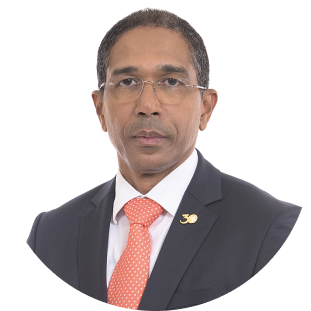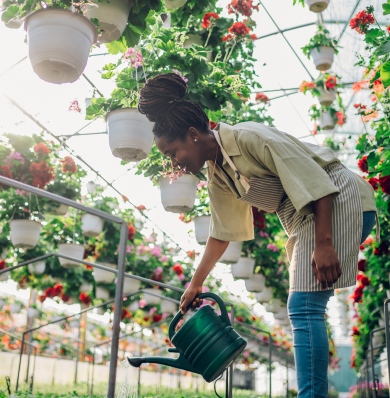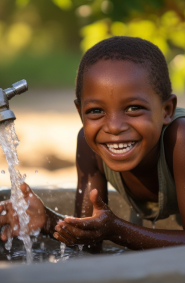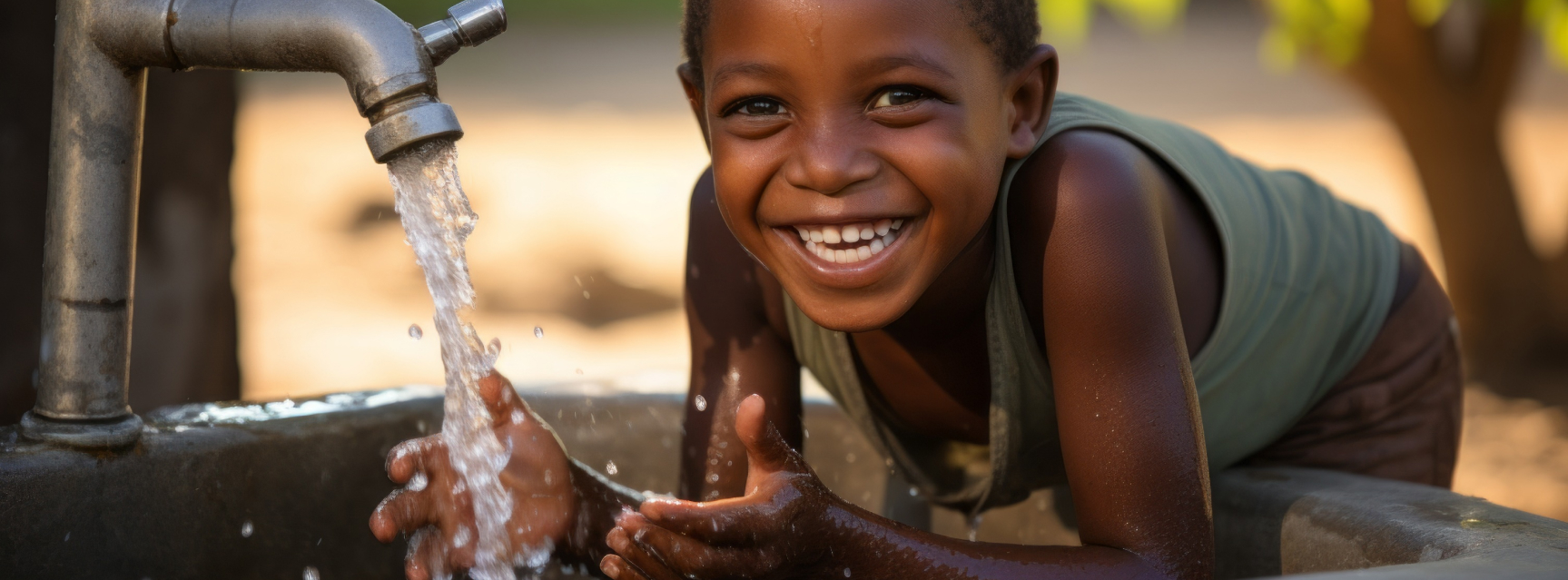
Download the report to learn about the sustainability information associated with BFA's performance, in its ESG dimensions (environmental, social and governance), resulting from its activities in Angola.
Download Report


We want to be the #1 Bank of all Angolans, focusing on transformation, people and the creation of economic and social value, through innovative and sustainable solutions.


We want to be the #1 Bank of all Angolans, focusing on transformation, people and the creation of economic and social value, through innovative and sustainable solutions.
Navigate through each area to learn more details and data
Navigate through areas for more details and data


We are pleased to present the Sustainability Report for the 2024 financial year.
This year marks a significant milestone in our ongoing journey toward fully integrating sustainability into BFA's business model. Our commitment to Environmental, Social, and Governance (ESG) principles has been further strengthened through the implementation of concrete and structural initiatives, solidifying the Bank's position as a key driver of positive transformation within the national context.
Luís Roberto Gonçalves | BFA's CEO


Luís Roberto Gonçalves
BFA's CEO
We are pleased to present the Sustainability Report for the 2024 financial year.
This year marks a significant milestone in our ongoing journey toward fully integrating sustainability into BFA's business model. Our commitment to Environmental, Social, and Governance (ESG) principles has been further strengthened through the implementation of concrete and structural initiatives, solidifying the Bank's position as a key driver of positive transformation within the national context.


Financial inclusion and literacy
Promotion of multi-channel and digitalization
Technological innovation
Community support
2 511
Downloads of BFA Educar application
3 038
Consolidated preschools in Uíge Province
126 009
New Bankita accounts opened in 2024
2
Childcare centers
1 881
Trees planted, distributed across 6 provinces

Financial inclusion and literacy
Promotion of multi-channel and digitalization
Technological innovation
Community support
2 511
Downloads of BFA Educar application
126 009
New Bankita accounts opened in 2024
3 038
Consolidated preschools in Uíge Province
2
Childcare centers
1 881
Trees planted, distributed across 6 provinces

Development, attraction and retention of human capital
Well-being, health and safety of Employees
Equality, diversity and inclusion

103
New employees
97%
Participation rate across the conducted training programs
66 216
Training hours, distributed across different areas

Distribution of first aid kits, highlighting BFA's ongoing commitment to ensuring not only professional development but also the emotional, physical, and social support of its employees.


Development, attraction and retention of human capital
Well-being, health and safety of Employees
Equality, diversity and inclusion
New employees
Participation rate across the conducted training programs
Training hours, distributed across different areas
Distribution of first aid kits, highlighting BFA's ongoing commitment to ensuring not only professional development but also the emotional, physical, and social support of its employees.



Good corporate governance practices
Integration of ESG factors in risk management framework
Creation of products with social and environmental value
Percentage of spend with local suppliers
Of employees were informed about anti-corruption procedures and policies
Total number of internal fraud cases identified
Provision of the Kandengue Account and the Kwenda Program, designed to help families meet future expenses related to education, training, and healthcare.

Good corporate governance practices
Integration of ESG factors in risk management framework
Creation of products with social and environmental value
Percentage of spend with local suppliers
Of employees were informed about anti-corruption procedures and policies
Total number of internal fraud cases identified
Provision of the Kandengue Account and the Kwenda Program, designed to help families meet future expenses related to education, training, and healthcare.

Operational Eco-Efficiency
33,23
m3
per employee
43
GJ
per employee
3,5
tCO2e/
per employee

Operational Eco-Efficiency
33,23 m3 per employee
43 GJ per employee
3,5 tCO2e per employee




BFA considers materiality analysis crucial for identifying the priority topics to be addressed in pursuit of sustainable transformation.
The materiality analysis took into consideration the following steps:
1
Benchmark & Industry Analysis
2
A broad array of initial and /or introductory material topics
3
Consultation with management and employees from different business areas
4
Final materiality framework


Integration of ESG factors in risk management framework (1)
Creation of products with social and environmental value (3)
Development, attraction and retention of human capital (4+5)
Equality, diversity and inclusion (*)
Well-being, health and safety of employees (6)
Good corporate governance practices (7)
Financial inclusion and literacy (13)
Technological innovation (15)
Promotion of multi-channel and digitalization (16)
Operational eco-efficiency (22)
* This topic was added later taking into account its importance to the Bank's strategy

BFA considers materiality analysis crucial for identifying the priority topics to be addressed in pursuit of sustainable transformation.
1.
Benchmark & Industry Analysis
2.
A broad array of initial and /or introductory material topics
3.
Consultation with management and employees from different business areas
4.
Final materiality framework


Please see here the chart that compares priority topics in terms of impact on BFA's business and relevance to stakeholders.

With the aim of continuous improvement in disclosing sustainability information, BFA facilitates feedback submission by its interested parties about this Report, through the email bfa@bfa.ao

With the aim of continuous improvement in disclosing sustainability information, BFA facilitates feedback submission by its interested parties about this Report, through the email bfa@bfa.ao
Download Report
Among the Tchokwe people, in northeastern Angola, the transmission of knowledge has its own distinctive form. It takes place through the Lusonas — geometric drawings traced in the sand, used to tell stories and pass down wisdom from generation to generation. More than art, they are a visual, oral, and ancestral language.
Each Lusona is born from a matrix of dots and takes shape through the hand of a narrator who draws while speaking. The continuous line weaves around each dot without touching it, revealing figures, moral teachings, and visions of the world. This tradition is part of the Intangible Cultural Heritage of Humanity recognized by UNESCO.
In this report, the Lusonas once again tell stories. They guide the structure and mark the beginning of each chapter, lending meaning to the areas where BFA operates.
Through the Lusonas, we bring together tradition and future, culture and purpose, to build a sustainability narrative rooted in Angolan identity.


Among the Tchokwe people, in northeastern Angola, the transmission of knowledge has its own distinctive form. It takes place through the Lusonas — geometric drawings traced in the sand, used to tell stories and pass down wisdom from generation to generation. More than art, they are a visual, oral, and ancestral language.
Each Lusona is born from a matrix of dots and takes shape through the hand of a narrator who draws while speaking. The continuous line weaves around each dot without touching it, revealing figures, moral teachings, and visions of the world. This tradition is part of the Intangible Cultural Heritage of Humanity recognized by UNESCO.
In this report, the Lusonas once again tell stories. They guide the structure and mark the beginning of each chapter, lending meaning to the areas where BFA operates.
Through the Lusonas, we bring together tradition and future, culture and purpose, to build a sustainability narrative rooted in Angolan identity.
